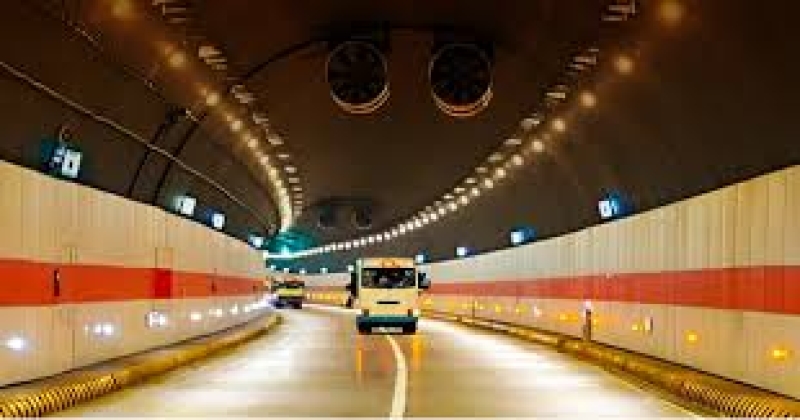- UN Calls for Calm in Bangladesh After Protest Leader’s Killing |
- DMP issues 7 traffic directives for Osman Hadi’s Janaza |
- Vested quarter fuelling chaos to impose new fascism: Fakhrul |
- Hadi’s namaz-e-janaza at 2:30pm Saturday |
- Jashore’s Gadkhali blooms with hope; flowers may fetch Tk4 bn |
Mitigating Losses of Karnaphuli Tunnel Project: Adviser

Road Transport and Bridges Adviser Muhammad Fouzul Kabir Khan criticized the Karnaphuli Tunnel project, calling it an example of "political showmanship." He stated that efforts are underway to address significant financial losses stemming from what he described as an "unrealistic" initiative.
"This tunnel was driven by political motivations, aimed at garnering public attention. While other countries have underwater tunnels, our current situation reveals that this project was merely grandstanding," Fouzul said in a recent interview with UNB.
The tunnel, constructed at a cost of approximately Tk 10,700 crore, cannot be easily shut down or dismantled. "We are assessing the reasons for the losses and exploring strategies to mitigate them," he added.
The adviser noted that authorities are considering ways to boost traffic flow through the tunnel, emphasizing that any investments will rely on accurate data rather than inflated estimates. "We must repay our foreign loans, so no speculative studies will be entertained," he stressed.
Despite being Bangladesh's first underwater tunnel, the Karnaphuli Tunnel has not achieved its projected benefits, resulting in substantial daily losses. Criticizing the previous Awami League government, he remarked, "They initiated projects for the sake of projects without considering national interests, leading to significant financial repercussions."
Fouzul pointed out that the tunnel's expenses far exceed its income, with initial vehicle flow estimates proving overly optimistic. Design flaws, including a low headroom of 4.9 meters that limits heavy vehicle access and prohibits fuel transport, have also hampered traffic volume.
Moreover, planned projects in Chattogram’s southern region and Cox's Bazar were not realized, further restricting tunnel usage. Jointly funded by Bangladesh and China, the tunnel was designed to connect Chattogram’s north and south, following the "One City, Two Towns" model seen in Shanghai.
According to the Bangladesh Bridge Authority, since the tunnel's opening on October 28 last year, revenue has continually fallen short of operational costs. In its inaugural month, November, it recorded 166,312 vehicle crossings, averaging 5,544 per day and generating Tk 3.94 crore. By April, daily traffic had declined to 3,855, and further to 3,073 in September, indicating a troubling trend.
Currently, the tunnel generates about Tk 11.80 lakh daily in tolls, but operational expenses, including artificial lighting and ventilation, average Tk 37.47 lakh per day, leading to a daily loss exceeding Tk 25 lakh.
Over the past year, the tunnel has accommodated approximately 14.11 lakh vehicles, predominantly light vehicles, with revenues totaling Tk 37.44 crore—far below initial projections. Estimates from 2017 anticipated a daily average of 20,719 vehicles upon opening, growing to nearly 38,000 by 2030. However, current figures indicate only 4,613 vehicles per day, primarily tourist transports.

